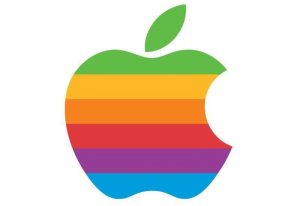Apple Throws Curveball at US Online Gambling Market
US-based Apple Inc. has issued an update within its always-evolving App Store policies that could throw a monkey wrench into online operators plans to rapidly expand into all forms of online gambling. The news, which has gained public exposure in recent days, involves Apple declaring that online gambling apps for use on Apple iPhones, among several special categories of software may not use embedded HTML5 code. Instead, such apps must only use native iOS code, which in turn must be pre-approved by Apple before any such app will be allowed to appear in the proprietary App Store.
It’s a problem for most online operators, since such online-gambling platforms are generally written once, into web-standard HTML (HTML5 being the web’s latest interactive generation of language), and then converted or “wrapped” into an iOS shell. Think of the way a major white-label poker software platform — the Microgaming Poker Network is a fine example — offers skins to its dozens of partner sites. The skin features branding and front-end connectivity and is grafted on top of the underlying MPN software that actually runs the games. That’s roughly what virtually all online-gambling operators have done to make their products available to iPhone users: they’ve run their existing HTML code through an iOS converter, checked for problems, and issued the release.
 There haven’t been any problems with that approach, but now Apple says that’s no longer good enough. In a June 3rd update, Apple introduced this new requirement:
There haven’t been any problems with that approach, but now Apple says that’s no longer good enough. In a June 3rd update, Apple introduced this new requirement:
Guideline 4.7. HTML5 games distributed in apps may not provide access to real money gaming, lotteries, or charitable donations, and may not support digital commerce. This functionality is only appropriate for code that’s embedded in the binary and can be reviewed by Apple. This guideline is now enforced for new apps. Existing apps must follow this guideline by September 3, 2019.
Apple’s earlier guidelines already hindered operators’ development plans, with many mobile-gambling platforms already not available on Apple where otherwise legal and generally available. Under the latest changes, it’s likely to be even worse. According to multiple sources, the pending direct-iOS-code requirement is why SugarHouse’s new online Pennsylvania isn’t available on Apple, and a quick checking around of most software available in US regulated markets (and perhaps worldwide) shows that this is likely to be a widespread industry problem.
Apple is giving online operators three months, until September 3, 2019, to develop native iOS code and submit it for approval, but that’s almost certainly not enough time for most developers to produce a trustworthy and thorough platform. It’s also a bit of perhaps-unnecessary redundancy, since at least in the regulated US states, the software is already vetted by each state’s gaming regulators.
Still, barring some sort of antitrust action, Apple is likely to lean on the proprietary nature of iOS and its ownership of the App Store to make things very difficult for online-gambling operators.
While this will represent an across-the-board hampering of mobile gambling’s expansion, some segments and demographics are likely to be hit much harder than others. Mobile sports betting is likely to be hit much harder than either online poker or other forms of online gambling, which generally involve longer sessions and are less smartphone-friendly, even if available. The prevalance of iPhone usage within mobile smartphone bettors’ demographics also varies widely, with at least one site suggesting that at well over half of its likely smartphone bettors do so via iPhone.
One thing not yet discussed is the possibility that the entire industry, operators and end users alike, will increasingly say, “Fuck Apple,” and get themselves a dedicated and less-expensive “burner” phone from a rival manufacturer, then dedicate that phone entirely to sports betting. For dedicated wannabe online bettors, that’s a very real possibility, even if it does make one think of all the old stories of hubbies creating special hideaway bank accounts secreted from wife and family. Maybe now we’ll have hideaway phones connected to online sites, too, which isn’t something the industry really wants nor needs. Yet if Apple is placing itself above the policies and approvals of state gaming regulators, that’s likely going to occur.




















COMMENTS